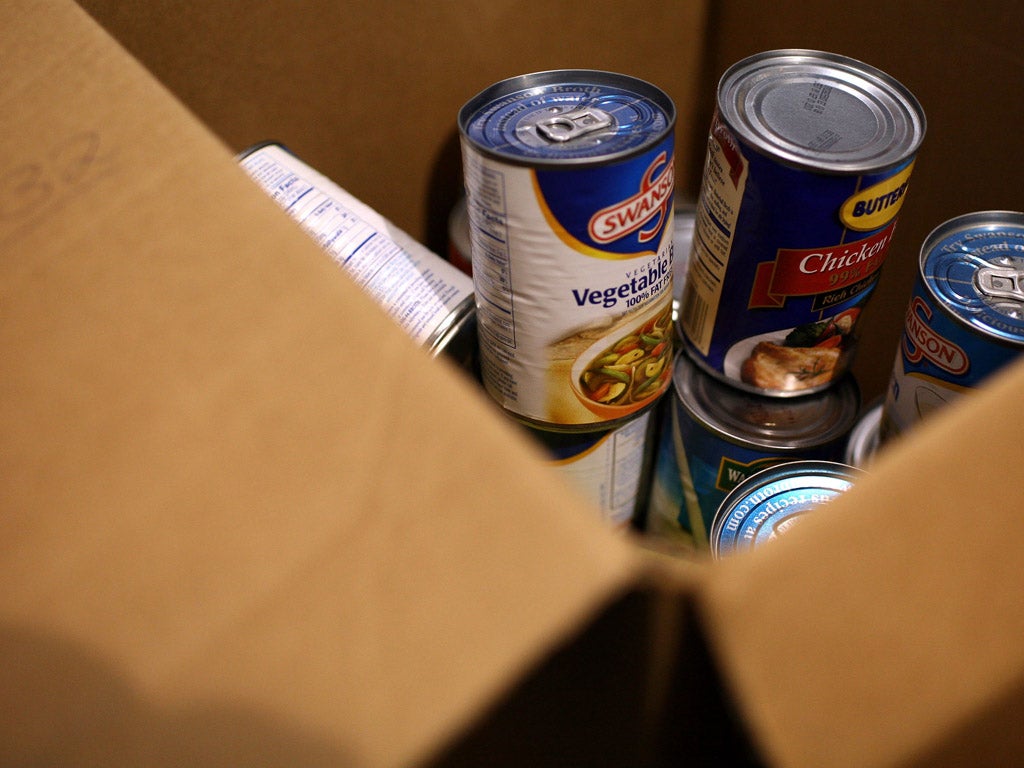The Government can either help struggling families or tip them further into deprivation
Some families managed by cutting back on fruit, or by not switching the heating on in winter. Others have exhausted their coping mechanisms and have reached crisis point.

Your support helps us to tell the story
From reproductive rights to climate change to Big Tech, The Independent is on the ground when the story is developing. Whether it's investigating the financials of Elon Musk's pro-Trump PAC or producing our latest documentary, 'The A Word', which shines a light on the American women fighting for reproductive rights, we know how important it is to parse out the facts from the messaging.
At such a critical moment in US history, we need reporters on the ground. Your donation allows us to keep sending journalists to speak to both sides of the story.
The Independent is trusted by Americans across the entire political spectrum. And unlike many other quality news outlets, we choose not to lock Americans out of our reporting and analysis with paywalls. We believe quality journalism should be available to everyone, paid for by those who can afford it.
Your support makes all the difference.Yesterday the Social Mobility and Child Poverty Commission released its first ‘state of the nation’ report, generating shock headlines that poverty no longer uniquely affects the workless, and that two thirds of families living on the breadline are actually the hardworking poor.
Flick even cursorily through the body of the report, however, and an all-too-familiar picture of poverty emerges. Inflation is disproportionately hitting the poorest families, wages are falling, absolute poverty is increasing and progress on child poverty is set to reverse.
For the families Barnardo’s works with, poverty is a reality they experience as they live daily on the tipping point between financial instability and crisis. Across the UK, parents tell us that their budgets are being increasingly squeezed as their incomes fall, benefits are cut, and they struggle to cover rising childcare, energy and food bills.
Some tell us they have managed in the economic climate by cutting back on fresh fruit, or by not switching the heating on in winter. Others have exhausted their coping mechanisms and have reached crisis point.
A mother of three in Wales told us that after her disability living allowance was cut, she borrowed money from family, then friends, and finally turned to the food bank. Another, a supermarket worker, told us that she struggled to cover the extra cost of childcare she paid for every time an unexpected shift came up.
Recently, Barnardo’s asked families who use our children’s centres what had caused their financial instability. An unemployed parent in the North East said that “if a job comes up there are 300 or 400 people going for it!”
Clearly, these families did not choose to be poor. The Government, on the other hand, can take decisions that either help those who are struggling financially or tip them further into deprivation.
It’s clear from the report that the poorest have borne the brunt of the costs of economic recovery. Notably, the Commission finds that ‘regressive’ tax and spending decisions have left the bottom fifth of households making a larger contribution to budget deficit reduction than any other income group (bar the top fifth).
Again, this finding is being borne out behind the doors of Barnardo’s services where vulnerable groups are demonstrably being hit hard by welfare reform.
A young care leaver that Barnardo’s works with in Wales faces falling behind with her rent and even risks homelessness. The bedroom tax has left her unable to pay for the two bedroom social housing she lives in, and she’s unable to move out as there isn’t any one bedroom stock available.
It doesn’t stop there. The abolition of the Social Fund, which provided one-off loans to people in hardship, has left a young mother in Yorkshire unable to equip her new flat with basic items such as a kettle given that the local authority grant doesn’t cover such costs.
But all is not lost, as there is plenty the state can do to improve the financial status of disadvantaged families and lift more children out of poverty. For a start, the Coalition could commit to monitoring welfare reform policies like the 1 per cent cap on benefits increases, to ensure they don’t push families onto the breadline.
Additionally, proposals to provide working families with extra help for their childcare costs currently exclude up to 900,000 of the poorest. The government could act to help to ensure that work genuinely pays for parents on the lowest incomes, by extending that help to all families on Universal Credit.
Giving families the basic support that they need is imperative as children who grow up in poverty are more likely to get ill, fall behind at school and be unemployed when they leave education. Furthermore, it is predicted that the long-term bill for reduced productivity, lower educational attainment and poorer health will cost society £35 billion by 2020 (Loughborough University).
It is in everyone’s interests to protect these children from that bleak future.
Join our commenting forum
Join thought-provoking conversations, follow other Independent readers and see their replies
Comments